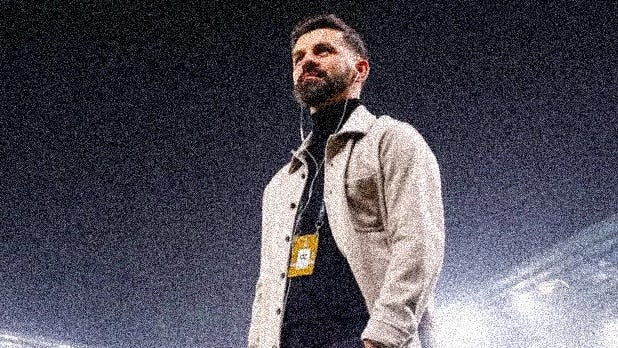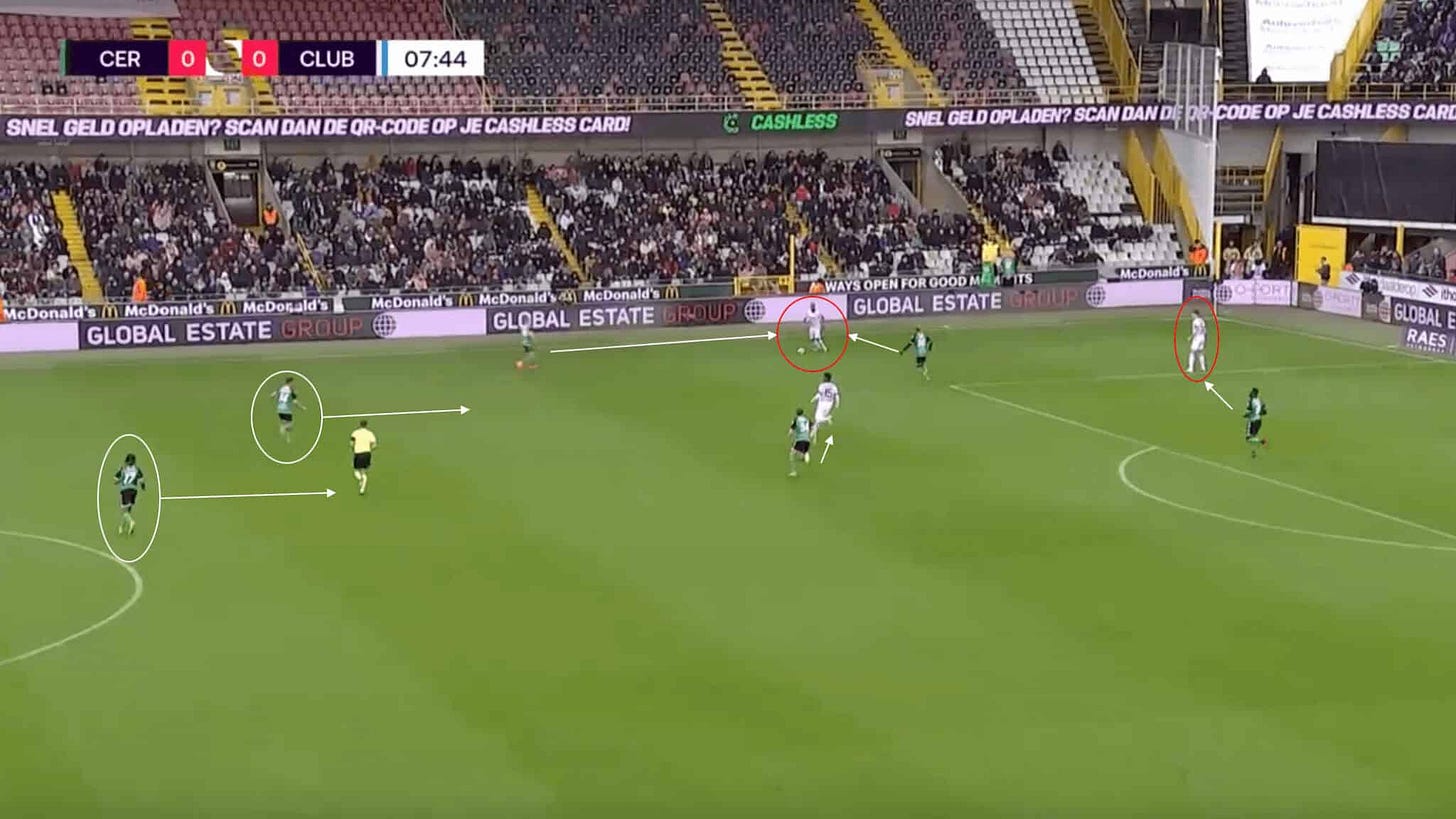Miron Muslic: Argyle's big decision and the challenges he faces
Here I am, ready to be hurt once again
It’s never a dull day at Plymouth Argyle. Managerless and without an away win since March, this team that never says die goes and pulls off a shock win at Brentford and gets a dream tie at home to Liverpool. Like you, I’ve watched the goal nearly 50 times and swallowed down the lump in my throat at Nance’s passion and interviews.
Just 24 hours earlier, Argyle had shocked us all once again—this time by overlooking Steven Schumacher in favour of former Cercle Brugge coach Miron Muslic.
As precisely nobody who reads this newsletter knew before Tuesday, he was the adored head coach of Cercle. Muslic dragged them from the bottom of the table to qualify for European football before being controversially sacked last month.
I was ready to write a sceptical newsletter, tempering the possibility of Muslic keeping us up. I’ve certainly been guilty of adopting, after initial reservations, a glass-half-full approach to recent appointments. And it seems the exact moment I get won over, it all blows up in my face.
But here I am again, fully invested and ready to be hurt again after Muslic’s Churchillian welcome speech, which is currently going viral on social media. And I’m even willing to put this out before we play Oxford—which is incredibly stupid.
Let’s see what he’s all about.
Why Muslic?
Speaking to figures within the club, the words “A fresh start” were telling. I’m someone who doesn’t like to see football managers return. It’s never as good the second time, and Schumacher could never have lived up to the glory of the promotion season.
It was also clear to decision-makers that possession-based football was not working for us. So Muslic’s brand of counter-pressing football, played high up the pitch, swarming the opposition to turn over the ball in dangerous positions was hugely appealing to the board.
It’s very similar to Foster’s philosophy. The fact is, Muslic is the kind of hire we should have made when we hired Foster. The ethos around Foster was correct, but he was, in effect, a Poundland Muslic—without the experience of putting these ideas into practice or the charisma to win over players and fans.
One could argue that Foster also didn’t have the skill as a coach to implement these ideas, because Argyle rarely pressed with the intensity required. Whether that was down to the players or the coach, we will find out when Muslic has a go.
You can read this excellent synopsis of Muslic’s style and football at Total Football Analysis. In short, it will mean launching the ball from deep to hit the forwards early, aggressive counter-pressing as a unit, high-intensity “swarming” of the ball, narrowing the pitch, and boxing the opposition in so they can’t play through you.
Looking around football, direct attacking football is the hallmark of teams punching above their weight — and both Forest and Bournemouth are bamboozling more expensively-assembled teams in the Premier League using that style.
And Muslic will focus on making us difficult to play against. In his address to the players he said: “It will be hard, annoying, and sh*t to play against us.”
The worry is that this football could become hoofy and easy for the opposition—exactly what we saw under Foster. Cercle Brugge’s stats show low pass completion and low possession, but they were devastatingly effective. That needs to be replicated quickly—and that will be challenging.
The Problems
Being an incredible orator doesn’t hide the fact that the squad doesn’t *seem* suited to playing an aggressive press. I’d love to be surprised by this, but none of the squad has shown any aptitude for high-pressing football thus far. Is that down to poor coaching? Or are the players not suited? We will find out.
It was Dominik Thalhammer, Muslic’s predecessor who set the direction of football for Cercle Brugge, but it was Muslic who made it a success. Players were recruited for that style and were already in place and playing the system when Muslic was appointed. At Argyle, he inherits a squad assembled for a completely different purpose and one that’s in a state of flux. So it’s reasonable to presume that it could take longer to implement his style. That’s time we don’t have. And it’s for that reason that I feel that while the future is brighter with Muslic, Schumacher would have a greater chance at keeping us up this season.
Muslic now finds himself with three games in 11 days. That’s the same situation Foster faced when trying to implement something similar. To his credit, Muslic sounds as if he’s pragmatic enough to start slowly. He’s already stated that simple messages are required in the short term, and that he will try to make the team compact and hard to play through, as well as push higher up the pitch to give the front line the best chance of scoring goals.
High-press football requires high levels of fitness. But across the front line, we have a host of players returning from injury and fitness levels are already depleted.
Whittaker’s injury was less serious, but he still had a month out of the team. Cissoko and Hardie are also returning from multiple injuries—in Ibi’s case, a serious one.
Al Hajj and Baidoo are fit, so they will be important. Baidoo looked very athletic, but I’ll be interested to see how Al Hajj’s languid style fits into an intense press.
And then there’s the transfer speculation over key players.
Muslic’s impressive aura and the post-Brentford buzz give him a perfect start. I also believe, like the club, that we do have a squad capable of pulling off a great escape.
But a quick look at the relegation odds shows us what Simon Hallett will see, as an investment guy. Statistically, we’re nailed on to go down and we probably will. Muslic gives us the chance to come back as a better Championship to fulfill the five-year plan.
Whatever happens, I just hope we show the heart and fight along the way.






